Infinite Powers: The Story of Calculus
by Steven Strogatz
“I yield freely to the sacred frenzy”—Johannes Kepler, 1619. Infinite Powers: the Story of Calculus is a popular math book, written for a general audience. In it, mathematician Steven Strogatz not only takes us through the history of calculus, from Archimedes to the present day—pointing out its extraordinary contribution to modern life along the way—but also conveys some of the excitement of doing math.
As I started reading Steven Strogatz’s new book, Infinite Powers: the Story of Calculus, my mind swept back to a classroom in Buckinghamshire, c. 1985. Mrs Holding, our long-suffering maths teacher, was standing in front of the class with a drawing of a curve on a blackboard. I could tell she thought it was something important and exciting, but I had no idea what she was talking about. I never did, and scraped through exams until age 15, when in the UK at least, we can give up math forever.
Many schoolchildren are more drawn to the arts subjects, and I’m probably not the only one who let calculus pass me by. Fortunately, we live in an era when a top mathematician can write a book about calculus that is accessible to the mathematically challenged. In the introduction to Infinite Powers Steven Strogatz writes, “It isn’t necessary to learn how to do calculus to appreciate it, just as it isn’t necessary to learn how to prepare fine cuisine to enjoy eating it.”
There’s a lot of focus in Infinite Powers on showing how key calculus is to many aspects of modern life: GPS, radio, ultrasounds, television, Shrek. The section on how calculus was behind the triple drug cocktail that has saved the lives of so many people with HIV is a real eye-opener. I do enjoy knowing all that and I also feel I should know more about how things I take for granted work. “Incidentally, you can use your oven to calculate the speed of light,” Strogatz drops in, in a section on microwave ovens.
But, at heart, I’m a humanities person, and it is the historical detail in the book that not only allows me to follow the math by taking me through how it was discovered, but also sticks in my mind. eg. Archimedes, a big hero of Infinite Powers and known to all for jumping out of a bath shouting, ‘Eureka’, apparently hated having baths. He had to be “carried by absolute violence to bathe” (Strogatz quotes Plutarch).
Where Strogatz performs a particularly important public service is in writing about the scientific revolution which took place in the 17th century. This is one of the most important things that has ever happened in human history, and I studied it as part of my undergraduate history degree at Oxford. But I never really understood the physics or the math. If I’m honest, I’d probably go further and say I never really understood the scientific revolution, because it doesn’t make a lot of sense if you have only a vague grasp of what Galileo or Newton were up to.
I always wonder, looking back at my schooldays and seeing my own children now, whether the context that Strogatz provides in Infinite Powers (and all the other great popular math books that are out there these days) makes it easier for the non-mathematically-inclined to ‘get’ mathematics. Take a simple example, from the first page of the book. The word geometry comes from Greek words for ‘earth’ and ‘measurer.’ Along the banks of the Nile, it was important to know where boundaries of farmers’ fields lay, as flooding washed physical markers away. This is the kind of thing I’ll tell my daughter, who is ten and struggles with math. She’s a very practical, bright person, and very good at puzzles when she was a baby. I can’t help but feel that part of the reason she finds math hard is that she doesn’t understand what the subject actually is, what all these numbers are and why she’s doing it. If she could understand the point of it, everything would fall into place.
The problem with these wonderful, vivid images (from now on geometry will always conjure up an ancient Egyptian farmer for me) is what I always think of as ‘the door.’ I first encountered it in a class with Jeff Sachs at Harvard. It was a class about inequality, why some nations are rich, others poor. As Sachs introduced the class and explained everything we were going to study, I couldn’t believe how interesting and exciting it all sounded. Then the actual class began: with an equation. Sachs had stepped through the door, into a room where I could not follow him.
In Infinite Powers Steven Strogatz makes heroic efforts to avoid stepping through the door. He uses metaphors, anecdotes and “homey illustrations.” He explains everything as simply as he can. But ultimately, in a book about a complicated mathematical concept, it’s almost inevitable that he goes through the door at times—from the historical world that I can understand to a world of numbers I find harder to get my head around. I think I can follow him, but I’m going to have to reread the book more slowly to confirm. Where your own door is located obviously depends on how good your math is.
Mulling it over, I think what Steven Strogatz’s book does very effectively is it makes me want to do the work to understand the concepts and get through that door rather than running away. More than 30 years after Mrs Holding’s first attempt, it makes me want to get out a textbook and start studying calculus.
 Sophie Roell, Five Books Editor
Sophie Roell, Five Books Editor
Recommendations from our site
“Infinite Powers is a wonderful motivational for anyone taking a course in calculus. For those readers who remember calculus with dread from maths classes of yore, here is a text that explains just why the material has always had such a key place in our curricula. It charts a history of ideas that sought to make sense of the world through mathematics—to develop methods that find the deep laws and patterns that govern nature and enable us to build everything from computers to jet engines, televisions to microwaves.” Read more...
The Royal Society Science Book Prize: the 2019 shortlist
Nigel Shadbolt, Technologist
“I learned so much from this book, mostly about the history not just of calculus but of our subject, mathematics, in general. It explains calculus in a way that you’re not really ever taught at school. Calculus is the subject of change and understanding how things vary with each other. Strogatz takes this really intuitive view of it. He breaks things down to their simplest components and shows you why these rules—that you learn almost as rote in school—work.” Read more...
Kit Yates, Mathematician
Other books by Steven Strogatz
Our most recommended books
-

A Concise History of Mathematics
by Dirk S. Struik -

Induction and Analogy in Mathematics
by George Polya -

Essays in the Theory of Risk-Bearing
by Kenneth J Arrow -

The Misbehavior of Markets: A Fractal View of Financial Turbulence
by Benoit B. Mandelbrot -

Mathematics in Victorian Britain
by Adrian Rice, Raymond Flood & Robin Wilson -

The Triumph of Numbers
by I B Cohen
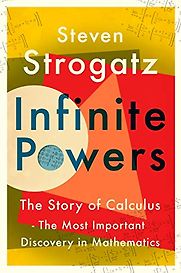
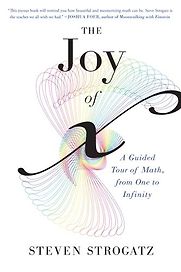

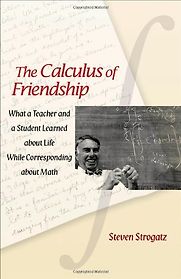
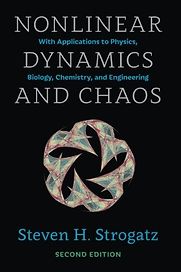
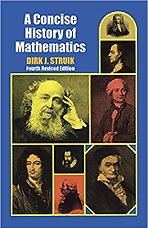
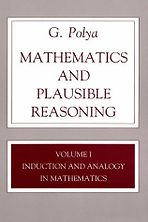

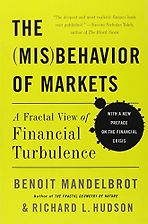
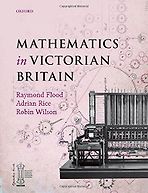
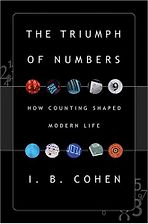
Five Books review